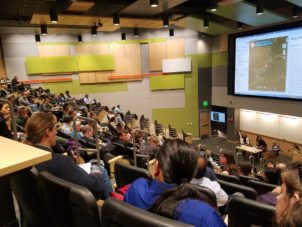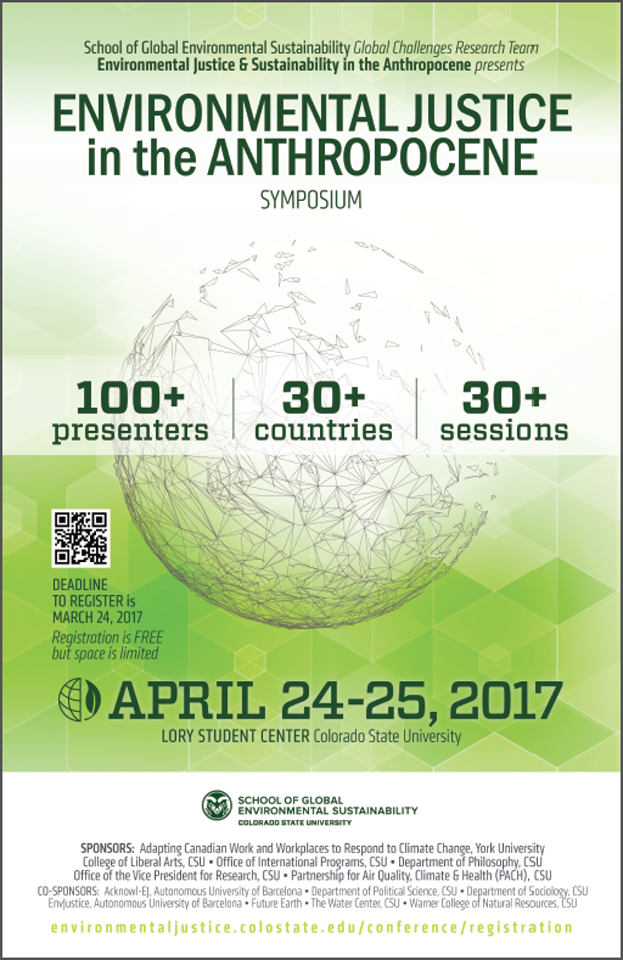
By Grettel Navas.
On 24 and 25 April 2017, the School of Global Environmental Sustainability (Colorado State University) held a most fruitful “Environmental Justice and Sustainability in the Anthropocene” conference. It was a multidisciplinary research conference aiming to share environmental justice studies around the world, with over 100 presenters.
The Anthropocene is the geological period in which the human race influences and alters Earth´s systems processes – atmospheric, geological, hydrological. It destroys biodiversity and changes the carbon and nitrogen cycles. Nevertheless, not all the “humans” affect the Planet in the same way. Further, not all the “humans” are affected by environmental damage in the same way. Power relations and environment are highly intertwined.
For example, in the Kuna Yala´s indigenous territories in Panama, the sea level is seen to increase annually 1.4 millimeters and the temperature has increased one degree C in the last ten years damaging corals, and other sea ecosystems from which Kuna Yala´s livelihoods depends on. “If we are not the ones that alter the environment, why do we have to pay for it?” voices Ariel Gonzalez, secretary of the Kuna Congress.
Further, in Latin America, the health’s consequences on the surrounding populations of the fumigated monocultures have been objects of dispute for years. The use of agro-toxics is increasing the water, soil and air pollution. The “fracking flu” in the USA, in which chemicals cause diseases and water pollution, was also a hot topic.
The Environmental Justice Atlas (EJAtlas) evidences such environmental disputes arising around the world because of mining, infrastructures, nuclear energy, tourism, monocultures, in which the economic benefits and environmental (and health) costs are substantially unequal. The negative effects are disproportionately distributed. Complaints arise. The environmental defenders face violence (in different doses) when they defend sustainability and their livelihoods. This was also a matter of concern in the conference. The EJAtlas and Global Witness Reports have highlighted this.
Giovanna Di Chiro from Swarthmore College (USA), a great thinker on gender health, and environment studies- was also at the Conference. She presented the panel “Whose Anthropocene? An Environmental Justice Critique.” The international conference aimed to respond to many questions related to political power, health, gender, race and sustainability but it also aimed to research the manner in which societies can promote just transitions and sustainable futures. The Program and the papers that were presented can be accessed here. 

The project ENVJUSTICE has received funding from the European Research Council (ERC) under the European Union’s Horizon 2020 research and innovation programme (grant agreement No. 695446)